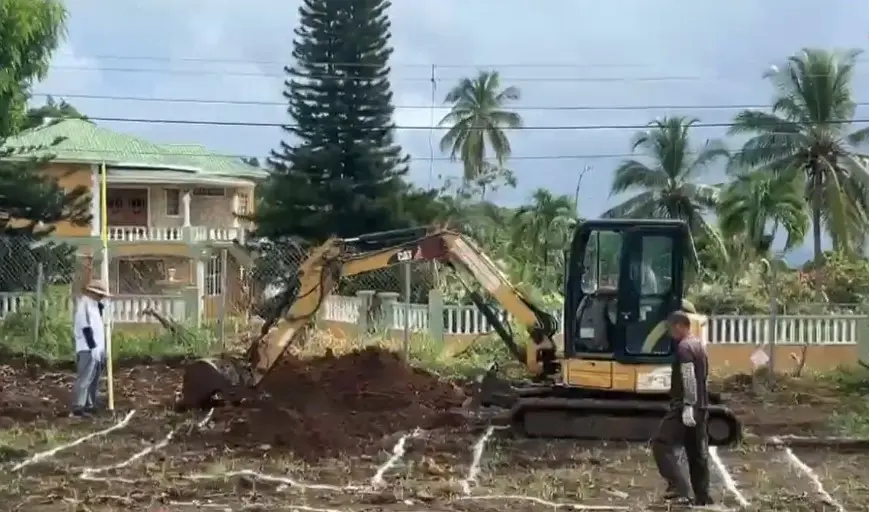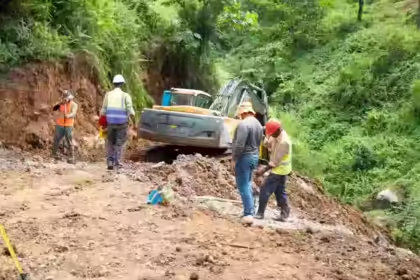Mirabeau, Saint Andrew in Grenada, is set to bring agriculture changes as the tissue culture lab construction phase is on track. The project is expected to be completed by February 2025. The People’s Republic of China has sponsored the tissue culture lab. The lab will provide disease-free plants to farmers through the micropropagation method.
The Lab project was started with the help of the Chinese Agricultural Mission Foundation, and the construction is in underway on approximately 2000 square feet of land.
Nigel Gibbs, the supervisor of propagation at the Mirabeau Station, explained that the facility will increase crop production in a short period of time. The Ministry of Agriculture of Grenada wants to provide relief to specific areas that who were severely effected by Hurricane Beryl.
The lab was introduced to deal with crop shortages after Hurricane. The lab’s first function will be to provide farmers with disease-free plantlets through micropropagation, an advanced technique that involves cultivating plant tissues in a sterile environment.
Additionally, he pointed out the importance of the new tissue culture lab as it’s a modern approach to agriculture practices, which is what the country needs right now. The government wants to be prepared for future climate disasters, especially after Hurricane Beryl.
Gibbs added that the people of Maribea need to do mass production of different crops and varieties and species like Musa (Banana). The lab will increase the production of different varieties of crops, such as Tanya, Dasheen, Sweet Potato, and Pineapple, which are easy and quick to produce. It will also be possible because of Germplasm techniques.
The construction of the lab will help in Germplasm breeding of crops and species as it will provide storage to keep the plant tissues. The plantation tissue can be kept for one to three years in the lab. This will help the farmers to grow their crops more than once and frequently and they will be able to produce ever after future calamities such as hurricanes.
Gibbs reported that most of the lab equipment is already in Grenada like orbital shakers, laminar flow hoods, and various reagents. He added that around 70 to 80 percent of the most required equipment has already been shipped to Grenada.
The lab also reflects the changes in the agriculture practice in Grenada. The construction of the tissue lab will create job opportunities for the youth of Grenada and will motivate the people who were hesitant to do agriculture.
He noted that this lab is going to need people who are very skillful in the areas of biochemistry, agriculture, botany, and horticulture among others. He requested that to all the aspiring young generation who want to work in this sector should join this venture. There will be training programs as well for those who are interested.







